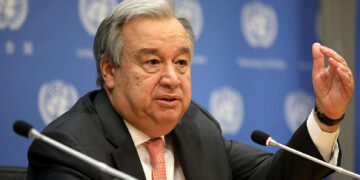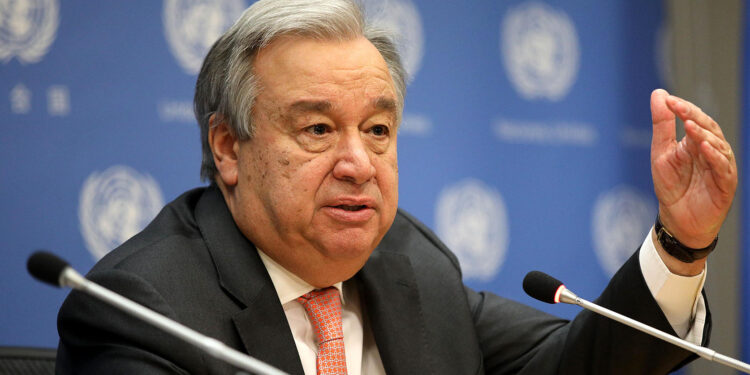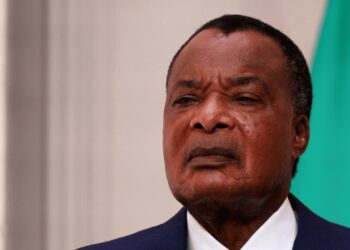By Emmanuel Nduka Obisue
The United Nations (UN) has suspended a vital air service in northeast Nigeria due to severe funding shortages, raising fears that humanitarian operations in the region could be crippled.
The UN Humanitarian Air Service (UNHAS), managed by the World Food Programme (WFP), halted its fixed-wing operations last week after nearly a decade of transporting aid workers, medical supplies, and critical cargo into conflict-affected zones.
“In 2024, UNHAS carried more than 9,000 passengers. Already this year, 4,500 humanitarian staff have relied on the service to reach vulnerable communities,” UN spokesperson Stéphane Dujarric told reporters in New York.
He stressed that the service cannot continue without additional funding. “UNHAS requires $5.4 million to remain operational for the next six months. Without this, the humanitarian response in northeast Nigeria risks being cut off from the very people it is meant to serve,” Dujarric said.
For nine years, the service has provided a safe alternative to dangerous road transport routes in Borno and Yobe states, where insurgency and insecurity continue to hinder relief operations.
The shutdown comes as the WFP grapples with major funding shortfalls. In July, the agency warned it might suspend emergency food and nutrition assistance for 1.3 million people in northeastern Nigeria.
Margot van der Velden, WFP’s regional director for West and Central Africa, said the agency urgently needs $5.4 million to sustain food and nutrition programmes in the region for just six months.
Although Nigeria’s government has become the largest financier of the emergency response in the northeast, the UN emphasized that international donor support remains essential to keep operations running at scale.
“The consequences could be devastating,” Dujarric warned. “Without air links, humanitarian workers lose safe access to remote communities where millions are already grappling with hunger, displacement, and violence,” he added.
The UN added that the loss of air services could force families into desperate decisions, enduring worsening hunger, migrating under unsafe conditions, or falling prey to extremist groups that exploit their vulnerabilities.
The crisis in northeast Nigeria is among the world’s most protracted humanitarian emergencies, now in its 16th year.
With global donor budgets under pressure from competing crises in Gaza, Sudan, and Ukraine, aid agencies fear that millions of Nigerians may be further isolated at a time when support is most needed.



































